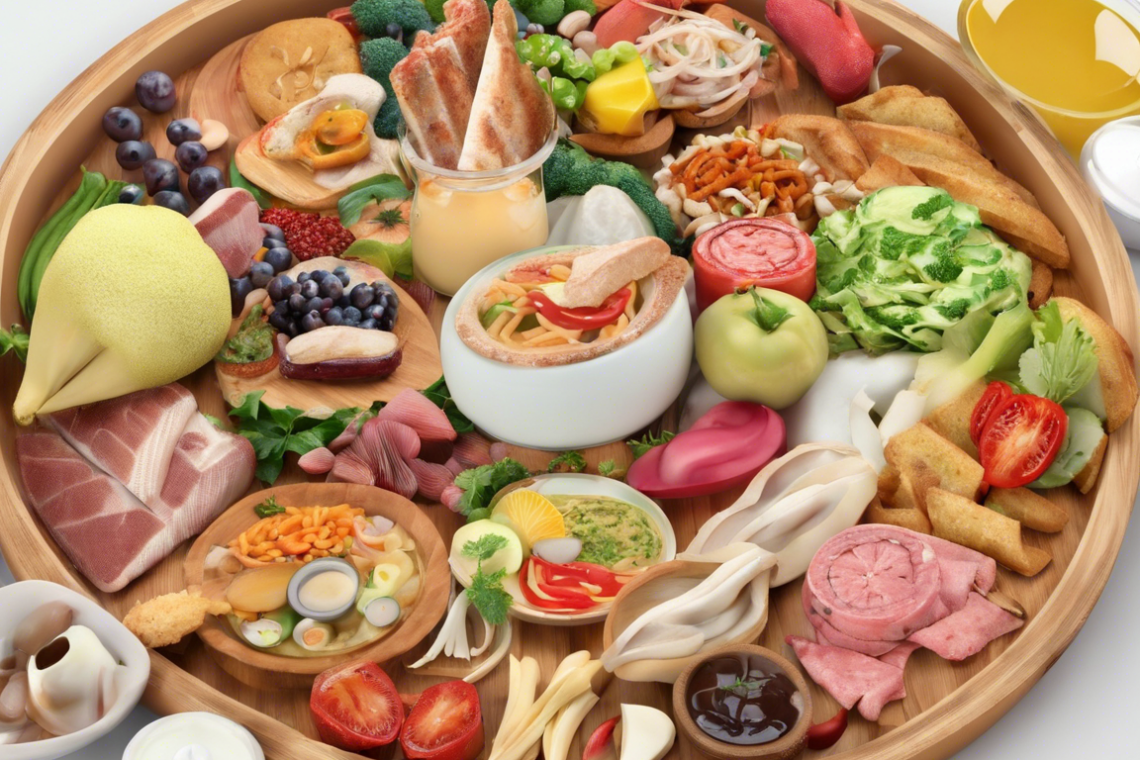
Are you ready to delve into the exciting world of food sustainability and trend forecasting for the year 2024? As we move towards a more environmentally conscious future, food sustainability has become a critical topic across industries. From innovative plant-based alternatives to food waste reduction strategies, the landscape of food sustainability is constantly evolving. In this detailed guide, we will explore the key trends that are set to shape the food sustainability sector in 2024.
Plant-Based Revolution
One of the most prominent trends in the food sustainability space is the rise of plant-based foods. With consumers becoming more aware of the environmental impact of animal agriculture, there has been a surge in the demand for plant-based alternatives. In 2024, we can expect to see an even greater variety of plant-based products entering the market, including alternative proteins made from sources such as algae, fungi, and even lab-grown meat.
Key Takeaways:
- Plant-based foods will continue to dominate the market.
- Alternative proteins will revolutionize the food industry.
Circular Economy
The concept of a circular economy is becoming increasingly popular in the food sustainability sector. This model aims to reduce waste and promote sustainability by reusing and recycling resources throughout the food supply chain. In 2024, we can anticipate the widespread adoption of circular economy practices, such as upcycling food waste into new products, implementing zero-waste packaging solutions, and creating closed-loop systems for food production.
Key Takeaways:
- Circular economy will drive innovation in food sustainability.
- Upcycling and zero-waste initiatives will gain traction in 2024.
Tech-Driven Solutions
Technology is playing a crucial role in advancing food sustainability efforts. From blockchain technology for traceability to artificial intelligence for optimizing food production, tech-driven solutions are revolutionizing the way we produce, distribute, and consume food. In 2024, we can expect to see even more tech-driven innovations, including smart farming practices, precision agriculture techniques, and food traceability platforms.
Key Takeaways:
- Technology will drive efficiency and transparency in the food sustainability sector.
- Smart farming and precision agriculture will become mainstream practices.
Community-Led Initiatives
Community-led initiatives are playing a vital role in promoting food sustainability at the grassroots level. From community gardens to farmers’ markets, these initiatives are fostering a sense of food security and resilience within local communities. In 2024, we can expect to see an increase in community-led food projects, such as urban farming cooperatives, food sharing programs, and collaborative food waste reduction campaigns.
Key Takeaways:
- Community-led initiatives are driving food sustainability at the local level.
- Collaborative food projects will promote food resilience in 2024.
Sustainable Packaging
Packaging plays a significant role in food sustainability, with single-use plastics being a major concern for the environment. In 2024, we can anticipate a shift towards more sustainable packaging solutions, such as biodegradable materials, reusable containers, and innovative packaging designs that minimize environmental impact. Brands are increasingly focusing on sustainable packaging alternatives to reduce waste and carbon footprint.
Key Takeaways:
- Sustainable packaging will be a key focus for food brands in 2024.
- Biodegradable materials and reusable containers will gain popularity.
FAQs (Frequently Asked Questions)
- What are the benefits of plant-based foods for food sustainability?
-
Plant-based foods require fewer natural resources and have a lower environmental impact compared to traditional animal-based products.
-
How can I contribute to food sustainability as an individual?
-
You can support food sustainability by reducing food waste, choosing sustainable products, and advocating for environmentally friendly practices.
-
What role does technology play in promoting food sustainability?
-
Technology enables traceability, efficiency, and transparency in the food supply chain, helping to enhance sustainability efforts.
-
Why is sustainable packaging important for food sustainability?
-
Sustainable packaging helps reduce waste and minimize the environmental impact of food packaging materials.
-
How can communities promote food resilience through community-led initiatives?
- Communities can create community gardens, farmers’ markets, and collaborative food projects to enhance food resilience at the local level.
In conclusion, the food sustainability landscape in 2024 is set to be defined by plant-based innovations, circular economy practices, tech-driven solutions, community-led initiatives, and a focus on sustainable packaging. By embracing these trends and making conscious choices, we can all contribute to a more sustainable and environmentally friendly food system for the future.
